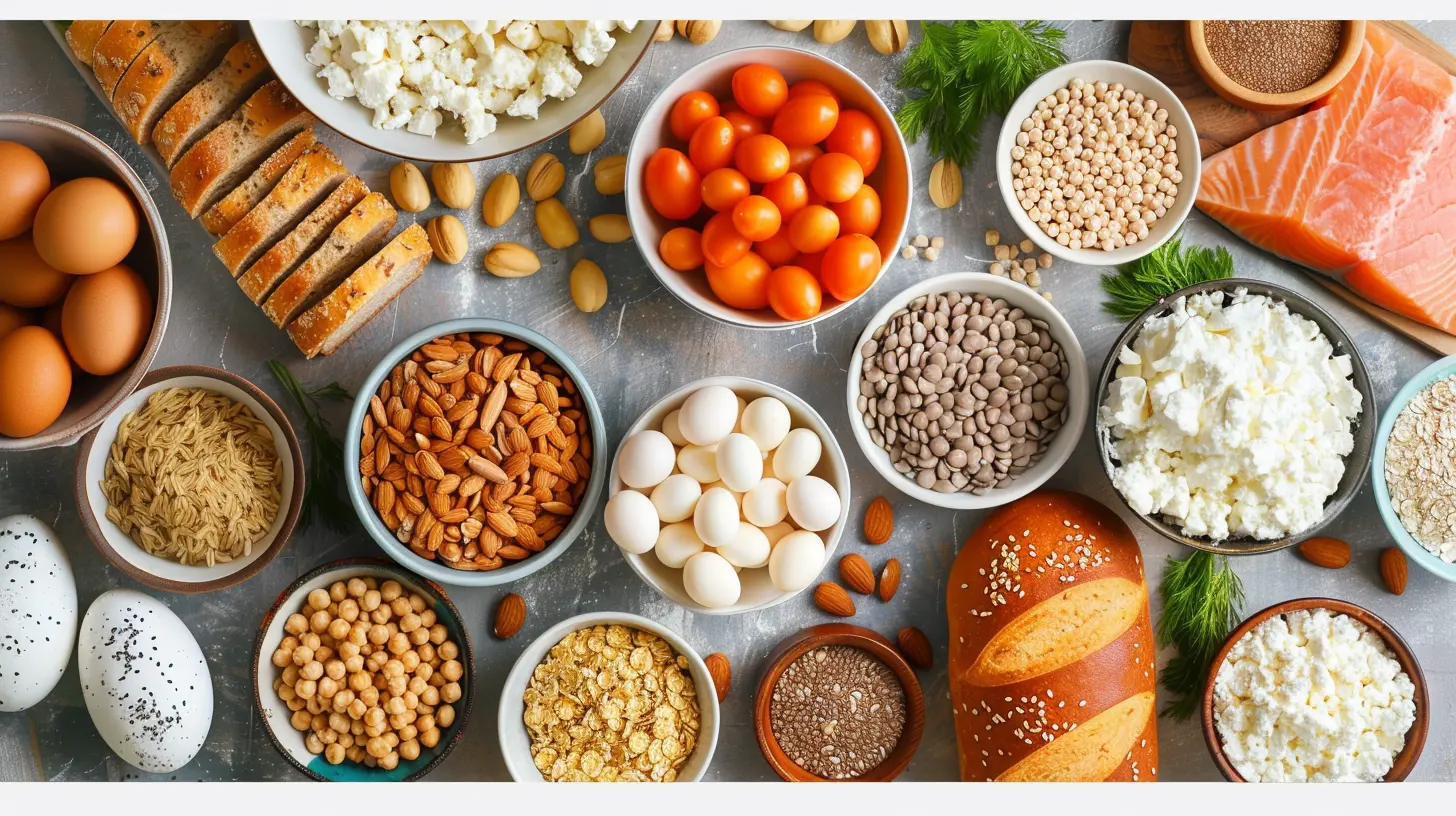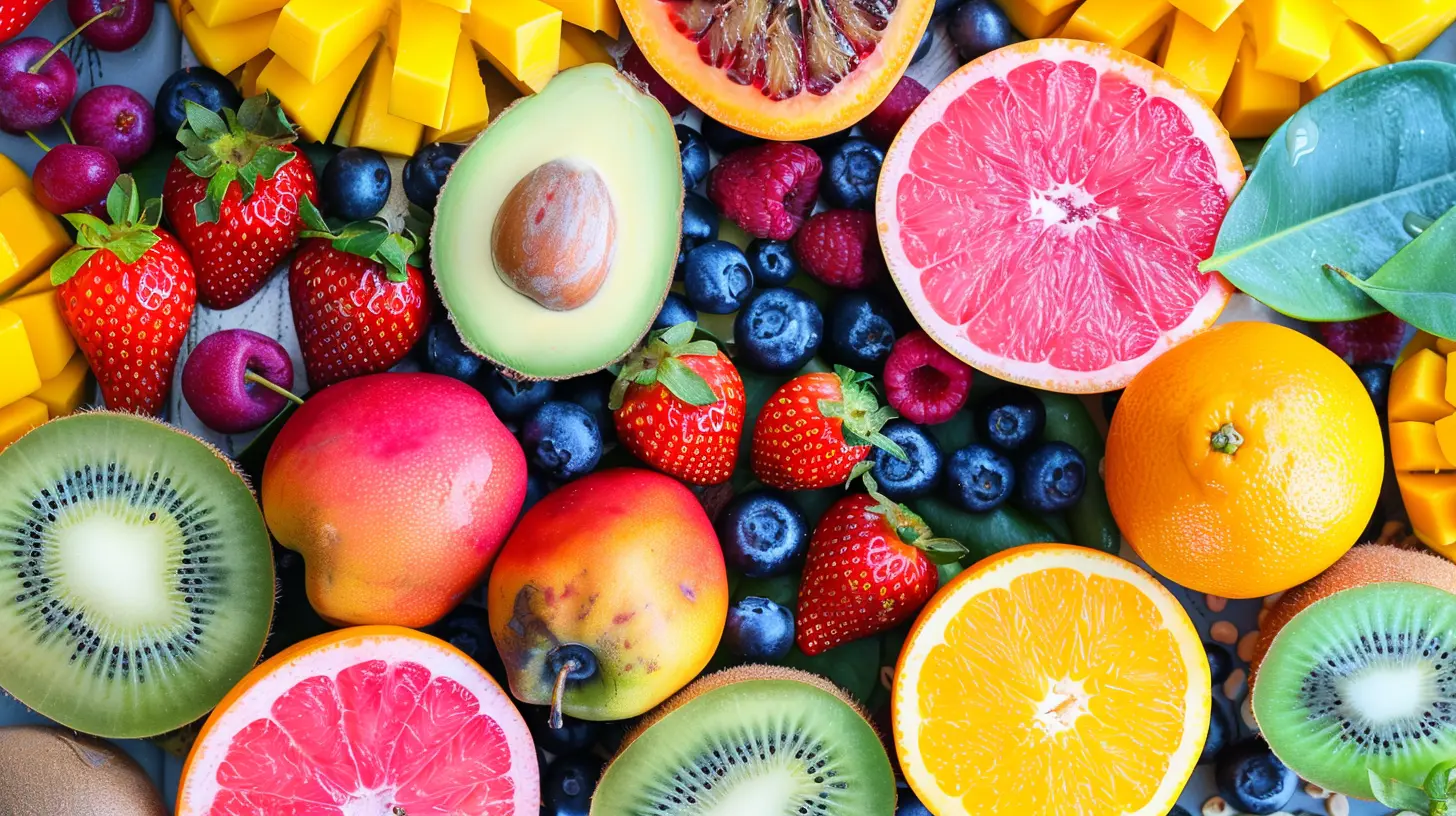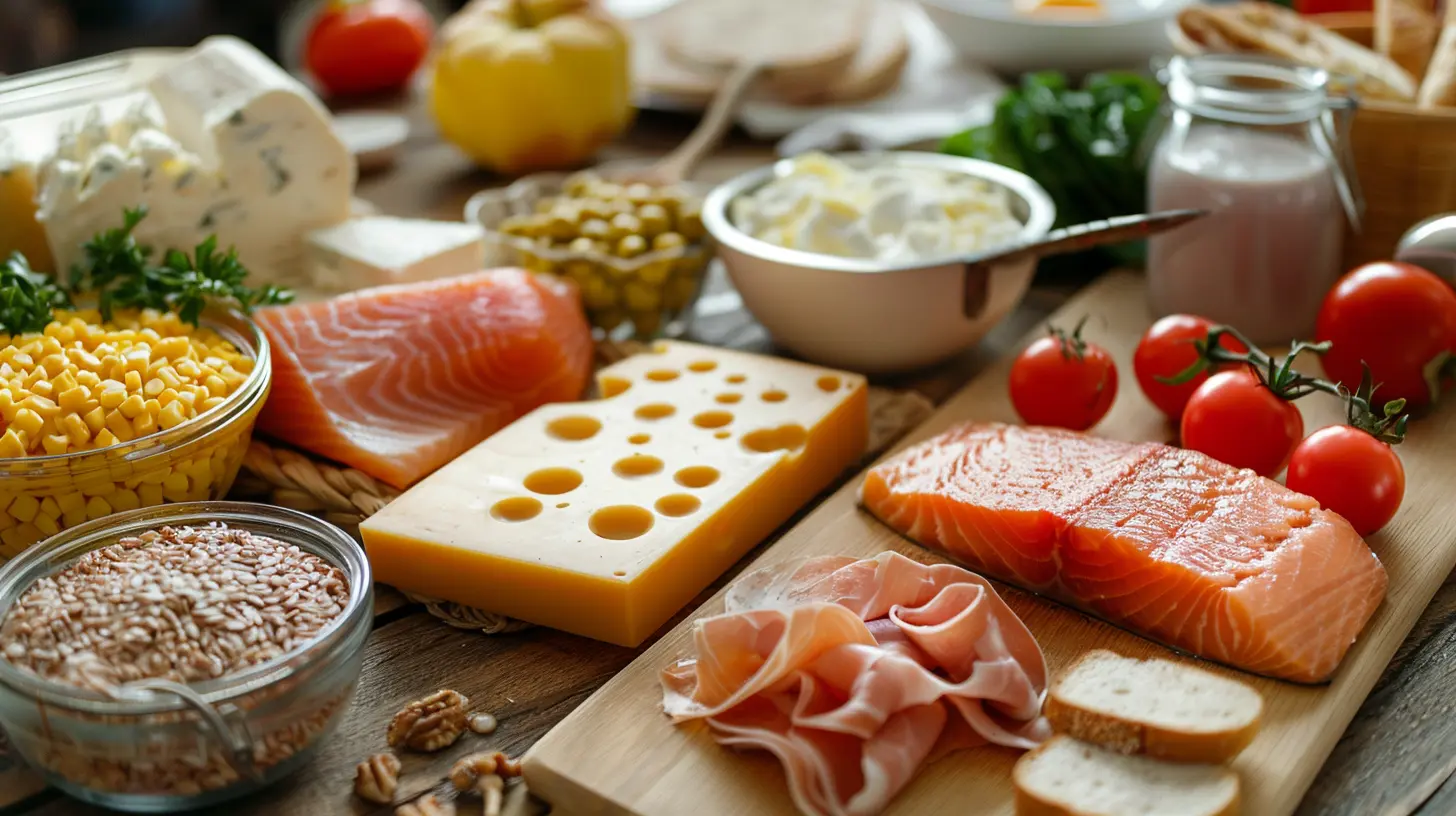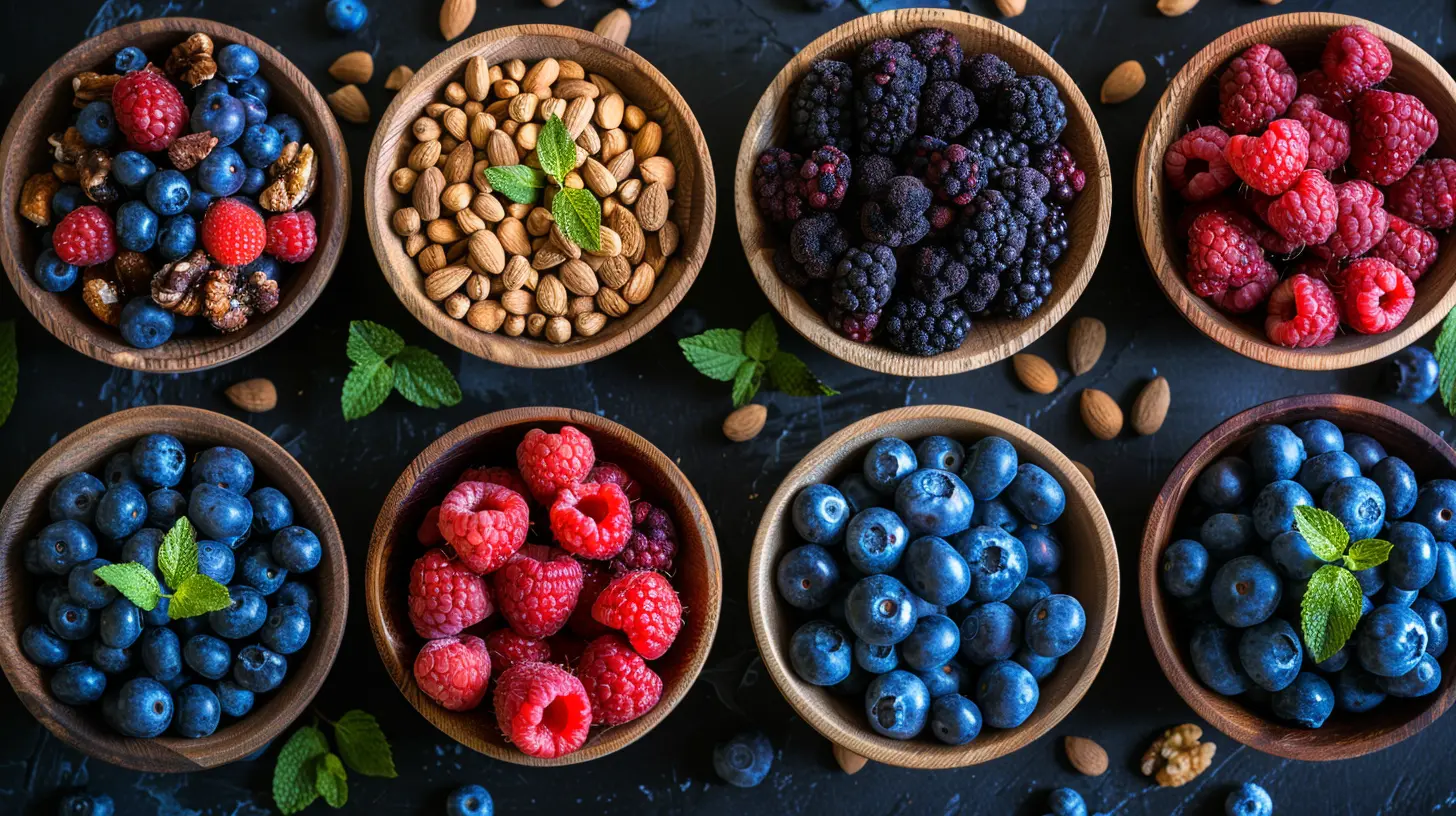Foods to Avoid and Why They Matter During Pregnancy
25 August 2025
Pregnancy is a beautiful journey that comes with a lot of excitement, anticipation, and—let's be real—plenty of questions. What should you eat? What should you avoid? Suddenly, every bite feels like it holds the weight of the world (or at least your baby’s health).
The truth is, while there are plenty of foods that nourish you and your growing baby, some can actually do more harm than good. That’s why knowing what to avoid is just as important as knowing what to include in your diet. Let's dive into the foods you should steer clear of during pregnancy and why they matter. 
1. Raw or Undercooked Seafood, Meat, and Eggs
Why It Matters
Raw or undercooked food might seem like a small indulgence, but during pregnancy, it’s a big no-no. These foods can be loaded with bacteria and parasites like Salmonella, Listeria, and Toxoplasma, all of which pose serious risks to both you and your baby.What Can Happen?
- Food Poisoning: Symptoms like vomiting, diarrhea, and dehydration can be dangerous when pregnant.- Listeria Infection: This bacteria can cross the placenta and lead to miscarriage, stillbirth, or severe health issues in newborns.
- Toxoplasmosis: A parasite found in raw meat and contaminated produce can cause developmental problems in the baby.
What to Do Instead
Make sure you cook all meats and eggs thoroughly. A meat thermometer can help ensure everything is cooked to safe temperatures. When in doubt, skip the sushi and opt for fully cooked seafood instead.
2. Unpasteurized Dairy and Juices
Why It Matters
Unpasteurized foods may sound "natural," but they can carry bacteria that are particularly dangerous during pregnancy.What Can Happen?
- Unpasteurized milk, soft cheeses (like Brie, Feta, and Camembert), and fresh juices may contain Listeria, which can lead to severe infections for both you and your baby.- Foodborne illnesses from these products can cause preterm labor or even miscarriage.
What to Do Instead
Stick to pasteurized versions of dairy and juices. Always check labels and ask when in doubt.
3. High-Mercury Fish
Why It Matters
Fish is an excellent source of omega-3 fatty acids, which are great for fetal brain development. But some types of fish contain high levels of mercury, a toxic metal that can harm your baby's nervous system.What Can Happen?
- Mercury exposure can lead to developmental delays and brain damage in babies.- Symptoms in pregnant women can include memory problems, tremors, and vision issues.
What to Do Instead
Opt for low-mercury fish like salmon, shrimp, catfish, and tilapia. Avoid high-mercury fish such as:- Shark
- King mackerel
- Swordfish
- Tilefish
Stick to about 2–3 servings of safe fish per week for the best benefits without the risks. 
4. Too Much Caffeine
Why It Matters
If you're a coffee lover, this one might sting a little. Caffeine easily crosses the placenta, and since your baby’s developing body can’t process it as well as you can, too much can be harmful.What Can Happen?
- Increased risk of miscarriage and preterm birth with excessive consumption.- Babies may have low birth weight, which can lead to health complications after birth.
- Caffeine can cause jitters, heart palpitations, and headaches in mothers who are sensitive to it.
What to Do Instead
Doctors generally recommend keeping caffeine intake under 200 mg per day—about one regular cup of coffee. If you need a pick-me-up, try decaf options, herbal teas (approved by your doctor), or smoothies.5. Processed Junk Food
Why It Matters
Cravings are a part of pregnancy, but processed foods loaded with sugar, unhealthy fats, and artificial preservatives don’t do your body—or your baby—any favors.What Can Happen?
- Excess weight gain, which increases the risk of gestational diabetes and complications during delivery.- Nutrient deficiencies, since junk food lacks essential vitamins and minerals.
- Higher risk of childhood obesity, as studies suggest that a poor maternal diet can impact a baby’s metabolism.
What to Do Instead
Try swapping out unhealthy snacks for nutrient-dense alternatives like fresh fruits, nuts, yogurt, or whole-grain crackers. If you're really craving something sweet, opt for dark chocolate or homemade treats with natural sweeteners.6. Alcohol
Why It Matters
This one’s probably not a shock, but it’s worth mentioning. Alcohol passes directly to your baby through the placenta, and even small amounts can have lasting effects.What Can Happen?
- Fetal Alcohol Syndrome (FAS): Can cause intellectual disabilities, behavioral issues, and physical abnormalities.- Developmental Delays: Alcohol can interfere with brain and organ development.
- Increased Risk of Miscarriage and Stillbirth: Even occasional drinking has been linked to pregnancy complications.
What to Do Instead
If you're craving the ritual of having a drink, try mocktails, sparkling water with fruit, or alcohol-free wine. There's no "safe" amount of alcohol during pregnancy, so it's best to avoid it altogether.7. Raw Sprouts
Why It Matters
Sprouts like alfalfa, clover, and mung bean might seem like a healthy addition to your salad, but they can harbor bacteria like E. coli and Salmonella.What Can Happen?
- Severe foodborne illnesses that can lead to dehydration and other complications.- Increased risk of infections that can pass to the baby.
What to Do Instead
If you love sprouts, cook them thoroughly before eating. Stick to leafy greens and other crunchy toppings for your salads instead.8. Deli Meats and Hot Dogs
Why It Matters
Cold cuts, hot dogs, and cured meats can be contaminated with Listeria, a bacteria that thrives even in refrigerated environments.What Can Happen?
- Can cause serious infections leading to miscarriage or stillbirth.- May contain nitrate preservatives, which some studies suggest could be linked to developmental issues.
What to Do Instead
If you’re craving a sandwich, heat deli meats or hot dogs until they’re steaming hot before eating. Consider using freshly cooked chicken or turkey as a safer alternative.9. Unwashed Fruits and Vegetables
Why It Matters
It’s always important to wash your produce, but during pregnancy, it’s even more critical. Unwashed fruits and veggies can carry harmful bacteria and parasites like Toxoplasma gondii (the same one found in raw meat).What Can Happen?
- Toxoplasmosis infection, which can pass to the baby and cause vision or brain damage.- Foodborne illnesses that can weaken your immune system during pregnancy.
What to Do Instead
Always wash your fruits and vegetables thoroughly under running water, even if they look clean. Scrub them with a brush or peel them when possible.Final Thoughts
Pregnancy is a time to nourish your body and your baby with the best possible foods. While some restrictions might feel a bit overwhelming, avoiding these harmful foods is worth the effort to ensure a healthy pregnancy and a thriving baby.The key? Focus on eating a balanced diet filled with whole foods, lean proteins, healthy fats, and plenty of vitamins. And if you ever feel unsure about a certain food, don’t hesitate to ask your doctor or midwife—because when it comes to your baby’s health, it’s always better to be safe than sorry!
all images in this post were generated using AI tools
Category:
Pregnancy TipsAuthor:

Tara Henson
Discussion
rate this article
1 comments
Imani Gates
Thank you for sharing this essential information!
September 11, 2025 at 4:28 AM

Tara Henson
You're welcome! I'm glad you found it helpful!


